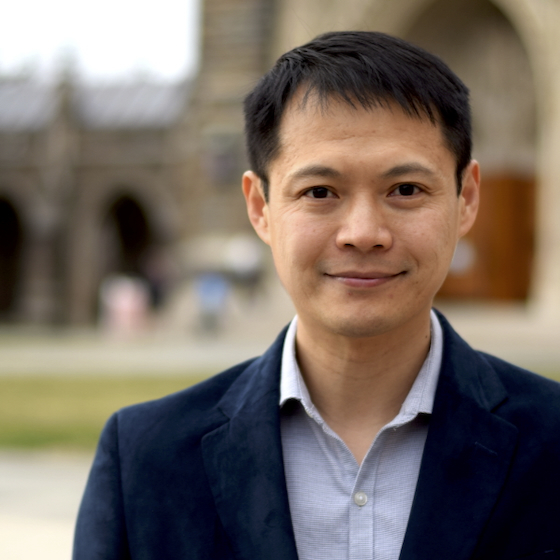
Yiyang Gong, PhD
Neuroscientists strive to study brain structure and function with increasing detail. While much of the brain’s structure has been sketched out, detailed study of the brain’s functions has proceeded more slowly. Today, existing electrical and optical techniques have estimated how the simple action potentials, or “spikes”, of single neurons represent complex environmental stimuli and drive sophisticated animal behavior. In the future, new neural recording and control tools will resolve how these individual spiking responses from many neurons coordinate into a symphony, or “population code,” to drive normal or dysfunctional behavior. For example, understanding motor population codes could potentially enhance neural prosthetics, and understanding excitability of specific neuronal populations could potentially improve treatment for neurological and psychiatric diseases. My long-term vision is to unlock this potential by creating neural recording and control tools that simultaneously probe many neurons to decipher population codes behind complex behaviors.
Our lab is interested in understanding brain function using the combination of genetically encoded sensors and optical techniques. Using genetically encoded tools, we can target specific neuron types or specific projection pathways for recording or perturbation. Using optical microscopy, we can access individual neurons with high spatial and temporal accuracy. By employing and developing tools in both categories, we study brain circuitry by recording, perturbing, and controlling brain activity in various preparations.
Yiyang Gong is an Associate Professor of Cell Biology at the University of Oklahoma Health Science Center. He was Assistant Professor at Duke University from 2014 to 2024. He was previously a postdoctoral scholar in Mark Schnitzer’s group at Stanford University focusing on the development of genetically encoded voltage indicators for visualizing neural activity, and a graduate student in Jelena Vuckovic’s group at Stanford University developing photonic crystal and plasmonic photonic devices for enhancing light-matter interaction. He is also a recipient of the Beckman Young Investigator Award, the Brain Research Foundation Seed Grant, and an NSF BRAIN Initiative Award.